
PREP Act Changes Clear the Way for Veterinarians to Contribute to Mass Vaccination Effort
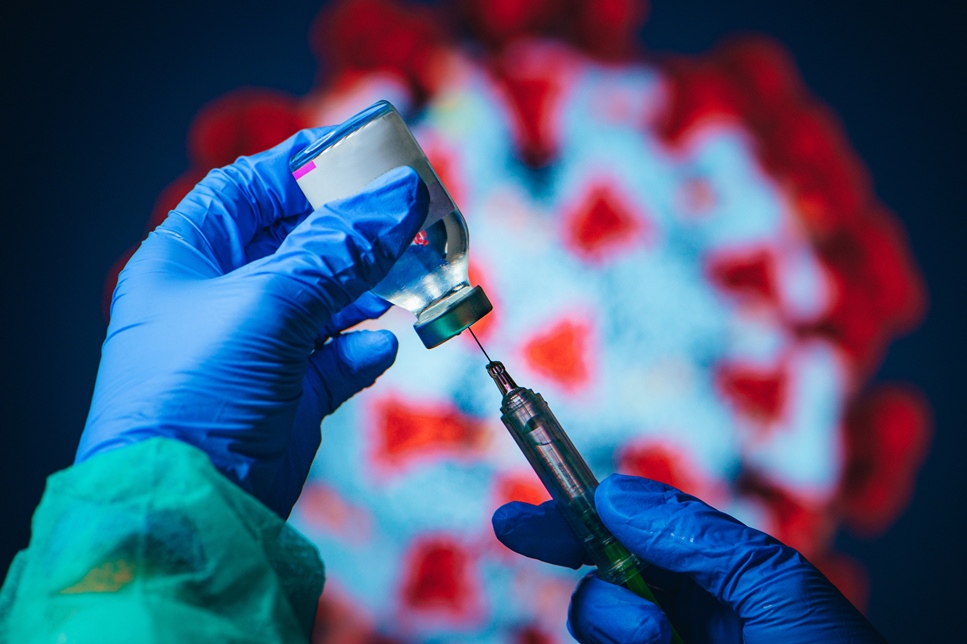
AAVMC member institutions have been battling the pandemic since it began. While many of our colleges and schools are providing research and diagnostic support, several are now engaged in an even more “hands-on” effort: assisting with vaccine administration.
That opportunity to serve was created when the Biden Administration released language in the Federal Register updating the Public Readiness and Preparedness (PREP) Act.
The updated language allows “any…veterinary student with appropriate training in administering vaccines as determined by his or her school or training program” to administer COVID-19 vaccines.
Governmental affairs personnel from the AAVMC and other members of the Federations of Associations and Schools in the Health Professions (FASHP) worked with the Department of Health and Human Services to update the PREP Act and create that opportunity.
Anecdotal reports show that faculty, staff and students at AAVMC member institutions are volunteering to assist with the vaccination effort in different ways.
At the Purdue University College of Veterinary Medicine, 86 students and nine faculty members were trained during college training sessions, according to Communications Director Kevin Doerr, though it remains unclear how many participated in vaccination efforts.
Purdue University Assistant Professor of Small Animal Orthopedic Surgery Dr. Sarah Malek originally volunteered to serve as a Spanish translator, but eventually served as a vaccinator. “It’s a way of giving back to the community that would not be possible under normal circumstances, and everyone can do a little bit to help, said Dr. Malek. “Once you do even a single shift, it really helps you feel like you’ve made a difference in the grand scheme of things.”
More than 40 Colorado State University College of Veterinary Medicine and Biomedical Sciences veterinarians stepped up to help out – including a massive effort to vaccinate about 4,000 people associated with the meat-packing industry – vital to keeping food production systems on line.
“I’m so glad that veterinarians are recognized as capable health care professionals and are able to play a role in this monumental vaccine effort,” said Dr. Andrea Bohn, a CSU veterinary pathologist in the Department of Microbiology, Immunology and Pathology said. “I would like to do what I can to keep people healthy and help end the pandemic.”
At the Iowa State University College of Veterinary Medicine, Dean Dan Grooms, several faculty, staff and fourth year students have been trained and are administering injections. Other members of the school are helping out on site with registration, logistics and other services.
Students at the Cummings School of Veterinary Medicine at Tufts University have been helping out with the vaccination effort through VaccineCorps since early March, according to Dean Allistair Cribb, and are prepared to engage more thoroughly with vaccination efforts if needed.
Students and faculty at the Michigan State University College of Veterinary Medicine are working with the local health department on vaccination administration, according to Dean Birgit Puschner.
Virginia-Maryland College of Veterinary Medicine faculty, staff, and students have also stepped up to serve as vaccinators and in other roles during the pandemic. Through membership and training in the Virginia Medical Reserve Corps, some faculty, staff, and students are helping the New River Valley Health Department with the immunization effort.
Strategic Lessons from a Medical School that Successfully Boosted Minority Student Enrollment
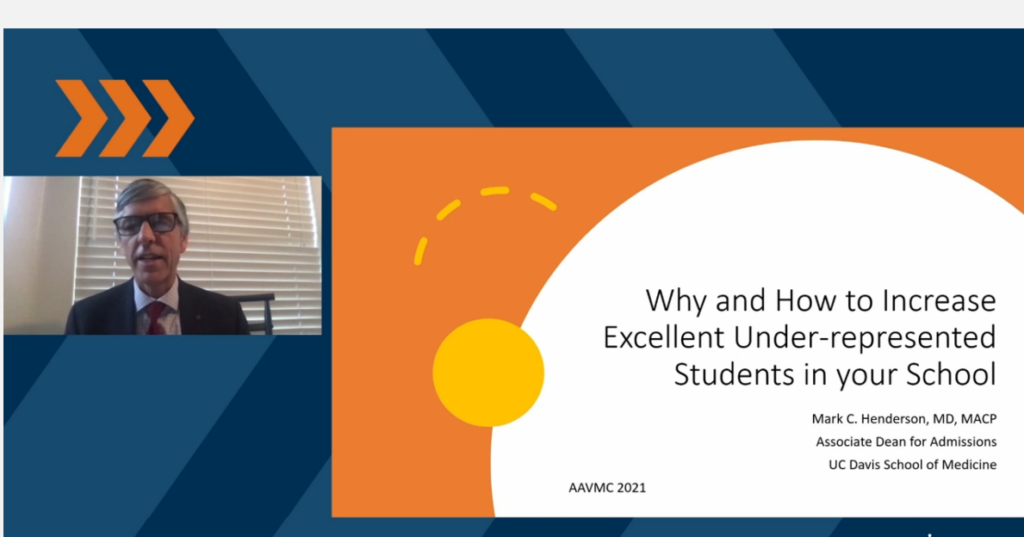
In the film Moneyball, the Oakland A’s general manager tries a new approach to statistical analysis in order to pick a winning baseball team. The new approach disrupts the way that teams choose players and succeeds for the A’s, to the surprise of many.
Dr. Mark Henderson, associate dean for admissions at the UC Davis School of Medicine, used that example when talking about how his school adopted a new approach to admissions, greatly increasing the percentage of students from under-represented groups. Henderson presented a talk on “Why and How to Increase Excellent Under-represented Students in Your School” at the AAVMC’s 2021 annual conference in March.
The School of Medicine (SOM) at UC Davis saw their under-represented student population increase from 7.5 percent in 2000 to 52 percent in 2020. (Under-represented groups were identified as American Indian/Alaskan Native, Black/African American, Hispanic/Latinx. Native Hawaiian or Filipino.)
The school accomplished that goal with an approach that included scholarships geared toward the mission of increasing diversity, holistic review that looked beyond metrics to consider other factors such as life experiences and attributes, and the use of multiple mini interviews conducted by a diversity of raters.
The school also incorporated a socio-economic disadvantage (SED) score to quantify hardship. The score looked at factors such as whether the applicant grew up in an under-served area, family income (including parents’ occupations and education) and whether the applicant qualified for need-based scholarships.
Medical school applicants from under-represented groups are more than twice as likely to have GPAs lower than 3.4 and MCAT scores less than the average, but “we can’t enhance diversity if admission is based solely on metrics,” said Dr. Henderson. He pointed out that using a metrics-only approach provides an advantage to already advantaged groups and that, for UC Davis, casting a broader net for admissions did not bring down overall averages. “We just had a wider variety of academic performance,” he said, “and in our view, that trade-off is worth the investment.”
From 1997 to 2017, the number of slots in medical schools increased by 50 percent but the percentage of enrolled students from under-represented groups decreased by 16 percent. Dr. Henderson also pointed out that mostly richer kids go to medical school. Without interventions, he said, “Medicine is losing ground (in terms of equity), and for many, the dream of being a doctor is slipping away.”
The UC Davis SOM is also unique in that 25 percent of students enroll in Community Health Scholar tracks that focus on producing providers who will practice in underserved areas, with programs tailored to vulnerable populations in rural areas, underserved urban areas, and the San Joaquin (Central) Valley in California, as well as an accelerated competency-based primary care program.
Students enrolled in the Community Health Scholar tracks are highly diverse. “Each of these students has a deep connection to an underserved population—that’s how we chose them,” Dr. Henderson said, “and all have community-based experience away from the big academic medical center experience that medical students often have.”
About one-third of the CHS students go into family medicine, which is a critical workforce need, he said.
The reasons for improving diversity, said Dr. Henderson, include an improved education environment, improved cultural competence and the contributions of diverse perspectives and experiences. He added that improving health equity is an important part of the school’s social mission and that doctors from under-represented groups are significantly more likely to work in under-served communities.
VMCAS Hosts Successful Veterinary Medical Admissions Fair
The AAVMC’s Veterinary Medical College Application Service (VMCAS) recently hosted a successful admissions fair to help prospective students connect with schools and navigate the application process.
Of almost 900 attendees who attended the virtual fair on March 31, most were college juniors (284) or seniors (242). There were also 18 high school students, 76 graduate students, 64 post-graduate students and others.
The fair enabled attendees to meet with veterinary schools from around the world and learn about veterinary medical careers. They could chat live with veterinary medical school representatives, compare schools, ask questions about the VMCAS application and learn how to get prepared for veterinary school. Seventy percent of the attendees had started their VMCAS 2022 application and over 300 students came through the VMCAS chat room.
AAVMC Director for Admissions and Recruitment Affairs Ms. Diana Dabdub said the most common questions that attendees asked revolved around experiences—how to enter them, the types of experience—and coursework—how to send transcripts to VMCAS, how to enter coursework in the application, and how GPAs are calculated.
“This year, hosting a virtual admissions fair was even more important given the impact COVID has had on the ability for in-person recruitment,” said Ms. Dabdub. “This virtual admissions fair allowed our schools to interact with both applicants in the current application cycle and prospective applicants. Additionally, it provided insights into the existing applicant pool and access to participant information for future communication. The online platform allowed optimal interaction at lower recruitment costs and allowed for time saved in travel and resources.”
She added that many schools were able to involve faculty, current veterinary students, and admissions staff in the virtual fair.
IPEC Announces Working Group Members for Core Competencies Revision: Update of IPEC Core Competencies to Begin June 2021
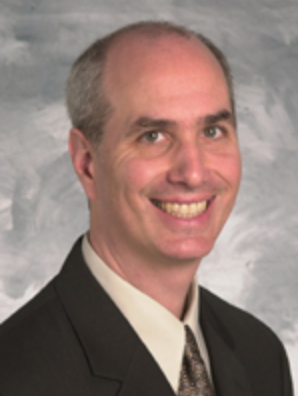
Dr. John Tegzes from the Western University of the Health Sciences College of Veterinary Medicine will represent the AAVMC as the Interprofessional Education Collaborative (IPEC) begins a formal process to review and revise the 2016 IPEC Core Competencies. The AAVMC works closely with other health education associations in IPEC.
Core competencies have helped frame the national dialogue on the need for interprofessional education (IPE) and collaborative practice (CP) to serve as a catalyst for improving team-based patient care and enhancing population health outcomes.
As the Director of IPE, Center for Excellence in Teaching & Learning, WUHS, since 2012, Tegzes directs a large scale IPE curriculum that includes nine health professions.
The Core Competencies Working Group includes a total of 23 members from all 21 IPEC member associations.
The Working Group will review evidence and generate proposals regarding IPEC Core Competencies and collaborate with an Advisory Group on recommendations.
After the project team offers their proposals and suggestions, IPEC will work with its members, external stakeholders, and communities of interest on eliciting additional input and feedback. The update process is slated to begin in June 2021 with a tentative release in early 2023.
CBVE Presents Town Hall Series, Builds out Website
The AAVMC’s Council on Outcomes-based Veterinary Education (COVE) will be presenting a CBVE Town Hall Series during Summer 2021 designed to increase awareness about educational opportunities about the program.
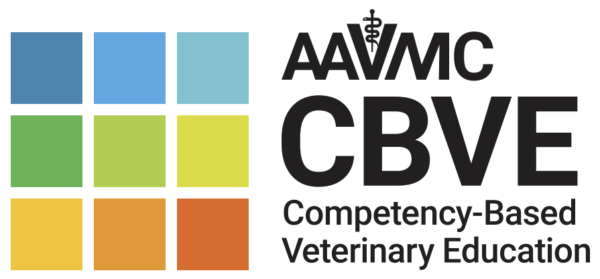
Zoom meetings are being organized on June 17 from 2-3 p.m. central time, and August 5 from 2-3 p.m. central time. Registration information will be available in a future edition of the Vet-Med Educator.
The CBVE group is also working with AAVMC Institutional Research to develop a brief survey which seeks to outline the status and future plans for CBVE implementation, as well as any faculty needs which could help support the process.
The CBVE group has also developed a more fully developed website which outlines the program and current activities. That site is available via link from the AAVMC’s CBVE site and on the CBVE site.
The Role of the Faculty in Student Mental Health
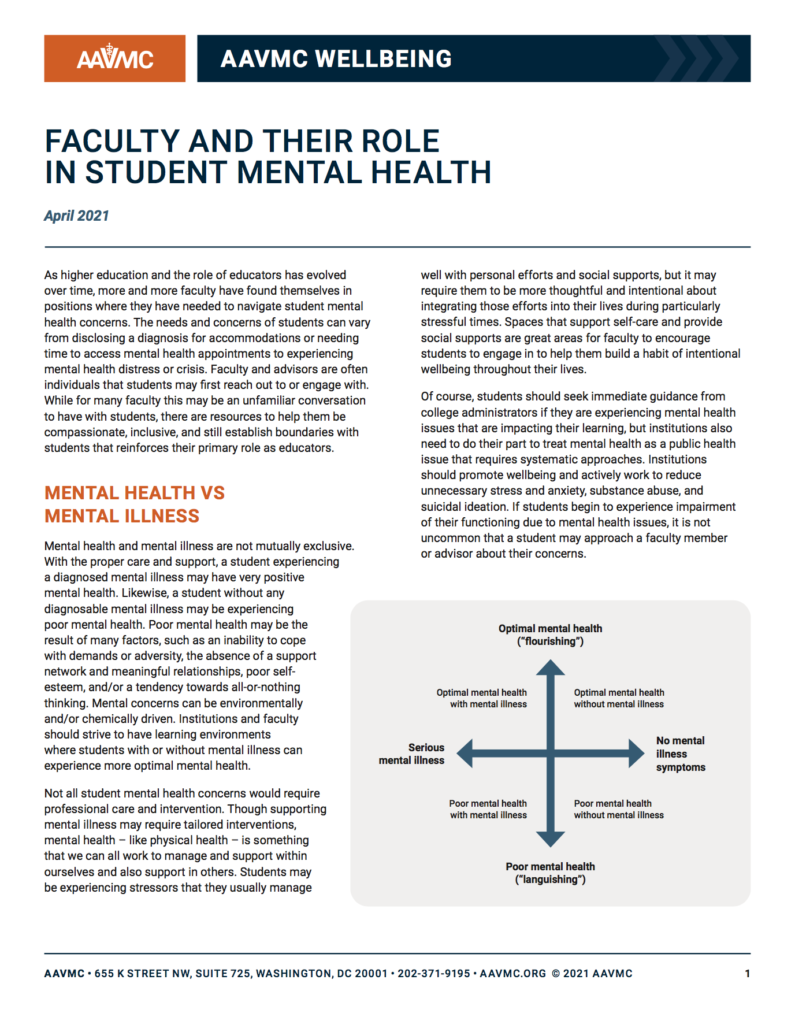
Student mental health is a precursor for effective learning. As higher education and the role of educators has evolved over time, more and more faculty have found themselves in positions where they have needed to navigate student mental health concerns. The needs and concerns of students can vary from disclosing a diagnosis for accommodations or needing time to access mental health appointments to experiencing mental health distress or crisis. Faculty and advisors are often individuals that students may first reach out to or engage with. While for many faculty this may be an unfamiliar conversation to have with students, there are resources to help them be compassionate, inclusive, and still maintain boundaries with students that reinforce their primary role as educators. AAVMC Director for Wellbeing Makenzie Peterson explains how faculty members can navigate and support student mental health in the newest of a series of monographs she has authored about wellbeing in academic veterinary medicine. Click here to read.
Two Leadership Opportunities Offered

Nominations and applications for two important leadership development programs are now open. These include the AAVMC Leadership Academy and the Academy for Advancing Leadership’s (AAL) Chairs and Academic Administrators Program (CAAMP).
“Developing talented professionals who will lead academic veterinary medicine toward a bright and productive future is one of our most important duties,” said AAVMC CEO Dr. Andrew T. Maccabe. “This initiative is deeply imbedded within our culture and our new strategic plan and we’re pleased to make these excellent opportunities available for our members.”
The AAVMC’s Leadership Academy, sponsored by Elanco Animal Health, will open the call for nominations for the 2021-22 Academy on May 11, 2021. After successfully transitioning into a virtual format last year, the Leadership Academy will evolve into a hybrid format for 2021-22. For details on the program, please visit AAVMC Leadership Academy. Nominations for the AAVMC Leadership Academy are accepted via the office of the Dean at each of our member institutions.
The AAVMC is pleased to be partnering with AAL this year to provide four tuition scholarship opportunities to participate in the AAL’s CAAMP program August 23-25, 2021. This program is designed for new, current or aspiring administrators in veterinary academic institutions. CAAMP will provide a practical, hands-on, interactive experience that develops the core competencies required for effectively managing an academic department or academic program. Participants may attend virtually or in-person (Atlanta, Georgia). Tuition scholarship applications are available now through May 31. Applications are only accepted through the online application system.
For questions about the AAVMC’s leadership development programs, please contact AAVMC Director for Professional Development Dr. Caroline Cantner at ccantner@aavmc.org.
Registration opens for Virtual NVSS 2021

The 2021 National Veterinary Scholars Program, which provides an opportunity for students to present their veterinary research, will be held virtually August 6, 2021 through Iowa State University, in partnership with the AAVMC.
“As the nation’s first public veterinary college, veterinary medical research at Iowa State has played a crucial role in developing tools to control and eradicate animal diseases,” said Iowa State University College of Veterinary Medicine Dean Dr. Dan Grooms. “Building on this legacy, Iowa State University’s College of Veterinary Medicine is excited to serve as the host of this year’s National Veterinary Scholars Symposium.”
The program, sponsored by Boehringer Ingelheim Animal Health, will feature keynote speakers, virtual poster sessions and networking events. This year’s event will build on the successes of the virtual symposium in 2020.
The Combined Degree Colloquium for DVM/PhD students will be presented virtually August 3-4. Information about the Colloquium as well as additional online opportunities for students in the Veterinary Summer Scholars Programs offered throughout the summer can be found on the NVSS website. The AVMA Early Investigator Award and the Burroughs Wellcome Fund Becoming Faculty Workshop will resume in 2022.
Registration for NVSS opened on Tuesday, May 4; students or faculty interested in attending can register by clicking here.
For more information, contact AAVMC Director for Professional Development Dr. Caroline Cantner at ccantner@aavmc.org.
2021 IPEC Leadership Development Program

Pandemic-related disruptions could lead to some permanent changes in health professions education. How will these events shape the future of interprofessional education and collaborative practice?
The 2021 IPEC Interprofessional Leadership Development Program (ILDP), which takes place virtually on June 8-10, will explore this impact through three lenses: the future of interprofessional education and collaborative practice (IPECP); making the case for IPECP after the events of 2020; and human flourishing in a world with a new perspective on diversity, equity, and inclusion. Participants in the ILDP will engage with an exceptional group of facilitators, speakers, and peers in this interactive program.
Interactive online sessions directed by the Academy for Advancing Leadership (AAL) will include:
- The future of learning
- Assessing leadership styles
- Integrating IPECP into health systems, the university, and the community
- Using scenarios to plan the future of IPECP
- The leader’s role in building coalitions and teams
- Effective practices for outcomes assessment
- Building a culture of inclusion
- Leading with the virtue of hope
IPEC envisions a future in which interprofessional collaborative practice drives safe, high-quality, accessible, person-centered care, as well as improved population health outcomes. This inspiring vision is the driving force behind the IPEC ILDP.
Click here to register your IPE team and submit a showcase topic to promote your successful implementation of IPE practices. The deadline is Monday, May 17.
If you are a dean or a campus-wide leader of IPE and you have questions about joining the 2021 IPEC ILDP cohort, please contact George Weinstein at gweinstein@aalgroup.org to discuss how the IPEC ILDP program can help you.
Antimicrobial Resistance, Use, and Stewardship Addressed at the NIAMRRE Inaugural Annual Conference
The inaugural National Institute of Antimicrobial Resistance Research and Education (NIAMRRE) Annual Conference was presented April 20-21. The meeting focused on engaging multisectoral stakeholders in the antimicrobial resistance (AMR) community, including those with a focus on animal health.
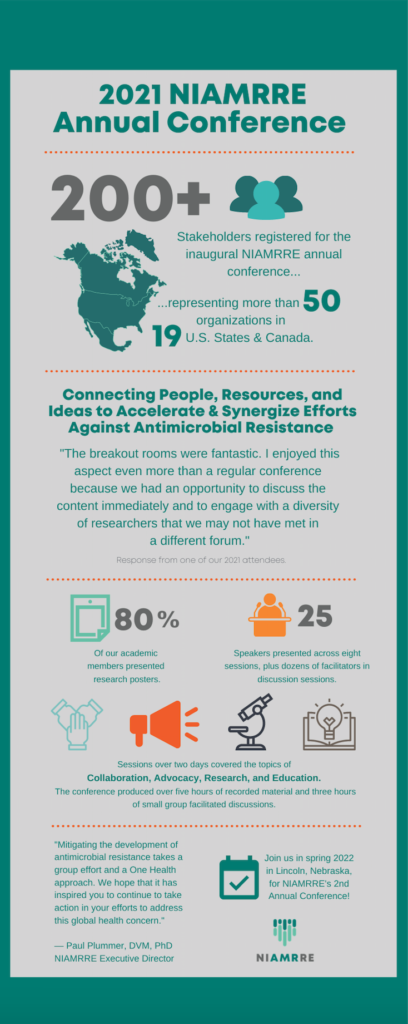
More than 200 NIAMRRE member and nonmember stakeholders representing more than 50 organizations and institutions connected during the two-day virtual event. The goal: to accelerate and synergize efforts to combat antibiotic resistance, use, and stewardship. Sessions focused on NIAMRRE’s four areas of priority: advocacy, education, collaboration and research.
AAVMC CEO Dr. Andrew T. Maccabe and Director for Governmental Affairs Mr. Kevin Cain each made presentations during the two day event.
Maccabe collaborated with former AAVMC President, CDC official and noted AMR expert Dr. Lonnie King during a presentation entitled “Learning Objectives and Methods for One Health.” Following their presentation, participants split into one of six discussion groups to apply an interprofessional education oriented perspective to each of the AMR Learning Objectives contained within the AAVMC and APLU National Action Plan to Address Antibiotic Resistance.
Cain collaborated with Matt Hammons from the University of Nebraska and Sophia Magill from Iowa State University to present “Advocating for AMR and a One Health Approach.” That talk helped attendees learn more about how to communicate with decision-makers and legislators about AMR and advocacy strategies for NIAMRRE.
The AAVMC and the Association of Public and Land-grant Universities (APLU) teamed up to create NIAMRRE following a multi-year collaboration focused on the AMR problem.
The 2022 NIAMRRE Annual Conference will be held in Lincoln, Nebraska, and hosted by the University of Lincoln-Nebraska.
AAVMC, APLU Panel to Discuss Biden Administration Action, Priorities
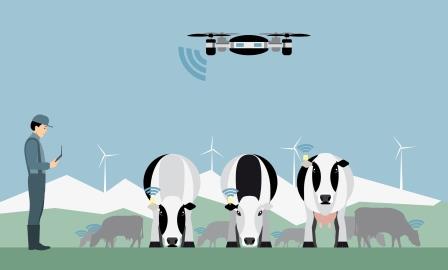
A panel of government relations, policy experts and educators will convene to discuss Biden Administration actions and plans related to higher education, agricultural research and science/STEM education during a webinar on Friday, May 21 at 12:30 p.m. titled “The First 100 Days, Plus a Few…”
Join the webinar here.
Representatives from the AAVMC, the Association of Public and Land-grant Universities (APLU) and other organizations will participate in the event.
Panelists include:
Dr. Catherine Woteki is President of the Charles Valentine Riley Memorial Foundation, Professor of Food Science and Human Nutrition at Iowa State University and Visiting Distinguished Institute Professor in the Biocomplexity Institute of the University of Virginia.
She served as Chief Scientist and Under Secretary for USDA’s Research, Education, and Economics (REE) mission area from 2010 to 2016. Prior to joining USDA, Dr. Woteki served as Global Director of Scientific and Regulatory Affairs for Mars, Incorporated, where she managed the company’s scientific policy on matters of health, nutrition, and food safety. She is a member of the Institute of Medicine of the National Academy of Sciences.
Lindsey Tepe is Director of Governmental Affairs for the APLU, where she conducts research and advocacy in support of member universities’ federal higher education policy priorities. Before joining APLU, Lindsey served as a Fellow with the Senate Health, Education, Labor, and Pensions (HELP) Committee Ranking Member Patty Murray’s staff. Prior to working on Capitol Hill, Lindsey served as a Senior Policy Analyst with the Education Policy program at New America.
Kevin Cain joined the AAVMC in 2012 as Director for Governmental Affairs. In that role, he works to educate Congress and the administration on the challenges and opportunities facing academic veterinary medicine. Prior to coming to the AAVMC, Kevin worked as Vanderbilt University’s Director of Governmental Affairs for Health and Biomedical Sciences. Cain served as a key aid to two members of Congress and, over the course of his 16-year career, has worked as a policy leader and advocate on legislative and regulatory changes.
Zara Day is Senior Director of Waxman Strategies a Washington, D.C. based public affairs and strategic communications firm. Day is an attorney specializing in health policy. Prior to joining Waxman, Day worked with CRD Associates.
AAVMC’s Maccabe Honored by The Ohio State University
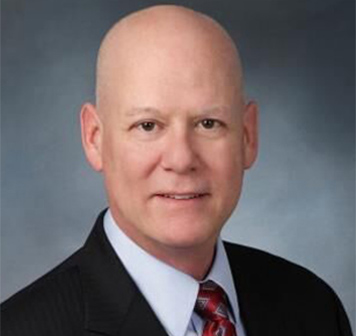
AAVMC CEO Dr. Andrew T. Maccabe was honored with a Distinguished Alumni Award by The Ohio State University during May 7 ceremonies. Maccabe was honored for achievements and contributions made during a career in veterinary medicine which has included private practice, federal government service as the Centers for Disease Control Liaison to the Food & Drug Administration, active and reserve officer military service with the United States Air Force and leadership positions with the AAVMC. “Andy has made broad and lasting contributions to the profession of veterinary medicine over the course of an exceptional career,” said AAVMC President Dr. Paul Lunn, dean of the North Carolina State University College of Veterinary Medicine. “The leadership he’s brought to the AAVMC over the past several years has helped our organization excel and we’re proud to see him accorded this much-deserved honor.”
NCSU’s Viveiros Wins AAVMC Pre-Veterinary Leadership Award
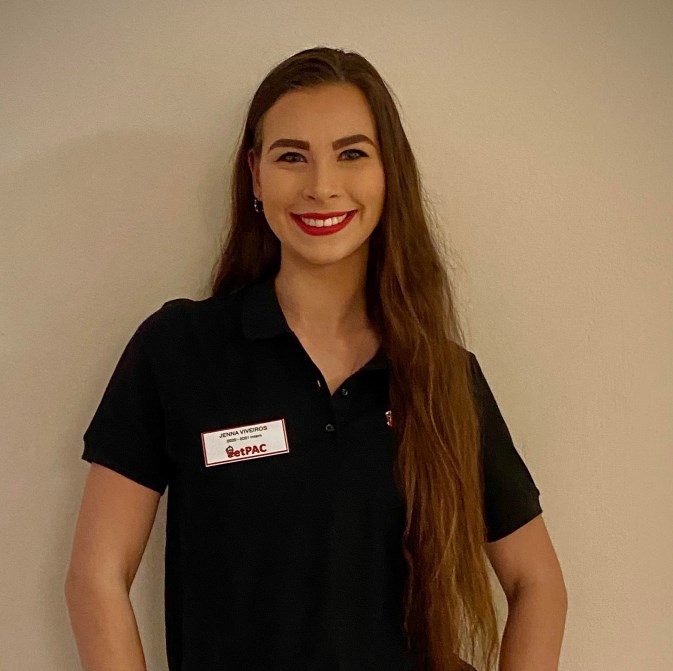
Jenna Viveiros, a 3rd-year student at North Carolina State University (NCSU), has been awarded the AAVMC’s 2021 Pre-Veterinary Leadership Award. Ms. Viveiros undertook a determined effort to prioritize leadership and community service in her extracurricular activities as a pre-veterinary medical student.
As an undergraduate biochemistry major, Ms. Viveiros was very active in the Pre-Veterinary Medical Association at NCSU. Serving as Service and Social Chair during her second year, she orchestrated various community service opportunities, including Operation Catnip and raising supplies for the Wake County Animal Shelter.
As Vice-President during her third year, she recruited and organized a series of diverse speakers for the club. She also conducted a VetPAC internship, which enabled her to mentor other students and further develop her leadership skills.
As the APVMA Fundraising Chair for this organization, she helped raise $2500 for students to attend the 2021 APVMA Symposium, which provided opportunities for she and her colleges to attend lectures and labs provided by professionals in various areas of veterinary medicine.
Ms. Viveiros will be attending the North Carolina State University College of Veterinary Medicine in fall 2021.
In the News
Research on Coronavirus Variants at UW Lab Buoyed by CDC Funding
PBS Wisconsin
8-year-old Tulsa Cancer Patient Gets Wish Granted, Becomes Veterinarian for a Day
News Channel 8
AAVMC Report Points to Bias in Admissions Process
VIN News
American Association of Veterinary Medical Colleges (conference story)
JAVMA
AAVMC Sessions Highlight Student Anxiety, the Overvaluing of Resiliency
JAVMA
Two Studies to Examine Antibiotic Use in Cats and Dogs
VIN News
Being Black in a White Profession
JAVMA
Our Immune System Links the Blood-Brain Barrier to Schizophrenia
Technology Networks
You and Your Dog: Variants of Coronavirus May Affect Pets
South Coast Herald
Penn Vet Study Finds Dogs Can Detect Positive COVID-19 Samples by Scent
The Daily Pennsylvanian
These Monkeys Formed an Unlikely Friendship After Hurricane Maria Wrecked Their Home
News Channel 3
Animals at Risk as BC Falls Behind in Educating Veterinarians: Society
Prince Georges Now
Veterinary Educational Debt Varies by Sector, Race
JAVMA
In Short: AAVMC Announces Name Change
JAVMA
International Inclusivity Central to AAVMC Name Change
Veterinary Practice News
AAVMC Revamps Brand With New Name
dvm360
From Our Members
A Tale of Two Tapirs
Tufts University
Global One Health Initiative Awarded CDC Cooperative Agreement to Expand Capacity and Strengthen Public Health Systems in Ethiopia
The Ohio State University
Technology to Treat Neurological Diseases, Pain Wins Indiana Fund’s Commercialization Award
Purdue University
CSU Veterinarians Provide COVID-19 Vaccinations in Northern Colorado
Colorado State University
UC Davis Performs First 3D Laparoscopic Adrenalectomy in Veterinary Medicine
UC Davis
PetSmart Charities Funds CSU Study to Improve Veterinary Care for Spanish-speaking Pet Owners
Colorado State University
College of Veterinary Medicine Launches New Database for Listing Externship Opportunities
Kansas State University
Purdue Scientists Key in State’s Battle Against COVID Variants, Future Viral Threats
Purdue University
Scientists from Virginia Tech, City of Hope Aim to Improve Therapy for Deadly Brain Cancer
Virginia Tech (Virginia-Maryland)
OSU’s College of Veterinary Medicine Launches Institute to Find Health Care Innovations for Both Animals and People
Oklahoma State University
To see a news feed featuring breaking news from our member institutions, please click here.
People in Motion
Dr. Renate Weller has been appointed dean, Faculty of Veterinary Medicine, at the University of Calgary, effective September 1, 2021.
“Like” us on Facebook or follow us on Twitter, LinkedIn, and Instagram:




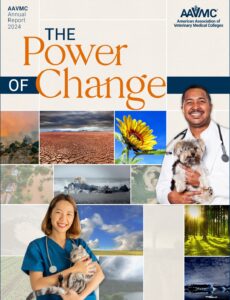




SHARE